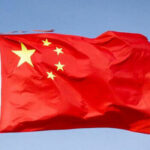The International Monetary Fund has revised its economic growth projection for Nigeria upward to 3.4 per cent for 2025, marking a 0.4 percentage point increase from its April 2025 forecast of 3.0 per cent.
The Fund also raised its 2026 growth outlook for Nigeria to 3.2 per cent, up from the previous 2.7 per cent estimate.
The updated projections were released in the IMF’s July 2025 World Economic Outlook report, which also revised global growth forecasts upward to 3.0 per cent for 2025 (a 0.2 percentage point increase) and 3.1 per cent for 2026 (a 0.1 percentage point increase). Similarly, the IMF upgraded its forecast for Sub-Saharan Africa’s economic growth to 4.0 per cent in 2025 and 4.3 per cent in 2026, up from April’s projections of 3.8 per cent and 4.2 per cent, respectively.
“Growth is expected to be relatively stable in 2025 in sub-Saharan Africa at 4.0 percent, before picking up to 4.3 percent in 2026,” the IMF stated in the report.
IMF Chief Economist Pierre-Olivier Gourinchas attributed the improved global outlook to several factors, including stronger-than-expected economic activity, lower tariff rates, easier financial conditions, and fiscal stimulus in some countries. However, he cautioned that risks to global growth remain tilted downward.
“Risks remain tilted to the downside. A breakdown in trade talks or renewed protectionism could dampen growth globally and fuel inflation in some countries. Persistent uncertainty may weigh on investment, while geopolitical tensions and fiscal vulnerabilities pose additional threats,” Gourinchas explained.
He added that while financial conditions have eased, they could tighten abruptly, particularly if central bank independence comes under threat. On the positive side, Gourinchas noted that progress in trade negotiations or structural reforms could boost economic prospects.
The IMF urged policymakers worldwide to implement measures that foster confidence and stability, emphasizing the need for clear trade rules, fiscal discipline, and structural reforms.
“Reducing policy uncertainty is essential. This is especially true for trade policy, where the global economy needs clear, transparent and predictable rules,” Gourinchas stated. “Many countries need to address fiscal vulnerabilities and rebuild fiscal buffers even if they face increased spending needs. Central banks must maintain price and financial stability while preserving independence.”
The report highlighted the importance of exchange rate flexibility and targeted interventions where necessary, in line with the IMF’s integrated policy framework. It also stressed that structural reforms remain critical for long-term economic resilience.
“Exchange rate flexibility remains key, even if some tailored interventions may be appropriate in certain cases in line with our integrated policy framework. Finally, structural reforms that ease policy tradeoffs and support long term growth remain essential to long term prosperity,” Gourinchas added.






